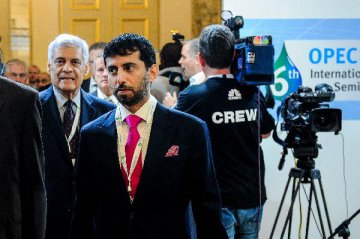
Italy has declined to revise its 2019 draft budget to comply with European Union (EU) fiscal rules, Deputy Prime Minister Luigi Di Maio of the populist Five Star Movement told reporters after a cabinet meeting held Tuesday night.
The European Commission has rejected Italy's planned budget, arguing it fails to reduce public debt and is based on unrealistic assumptions, and giving the Mediterranean country until midnight on Tuesday to submit a revised version.
"The draft budget won't change," said Di Maio, who also serves as economic development minister. "We've been elected to reverse the austerity policies of the past," he added.
Italy's rightwing populist government argues its planned budget will stoke the country's stagnant economy through a mix of generous welfare spending, tax cuts, and investments.
It introduces a basic income for the poor and the unemployed of 780 euros (878 U.S. dollars) a month, rolls back cost-saving pension reforms, and introduces a 15 percent flat tax for small businesses.
The measures are to be paid for by deficit spending equal to 2.4 percent of gross domestic product (GDP), which according to a version of the budget published by Finance Minister Giovanni Tria last month "is expected to grow by 1.5 percent in 2019, 1.6 in 2020 and 1.4 in 2021".
In a statement earlier on Tuesday, Tria said these growth forecasts are "non-negotiable" because they are "the result of purely technical assessments".
His statement came after critics both inside and outside Italy, including the European Commission, warned that Italy's draft budget is based on overly optimistic estimates.
In a Nov. 8 statement, Tria argued that "the European Commission's forecasts on Italy's deficit are in stark contrast with those of the Italian government and stem from a careless and biased analysis... we regret to note this technical failure on the part of the Commission."
On Tuesday, the International Monetary Fund (IMF) warned Italy that doing nothing to reduce its public debt could drive the country into a recession, ANSA news agency reported.
In its October World Economic Forecast, the IMF predicted Italy would grow by 1 percent next year, 0.9 percent in 2020 and 0.8 percent in 2021 -- far below government estimates.
Other critics of the government's proposed spending plan include Italy's Parliamentary Budget Office (UPB), Italian national statistics institute ISTAT, the Italian Audit Court, the Bank of Italy, Confindustria industrialists association, the Organization for Economic Co-operation and Development (OECD), and Fitch and Standard & Poor's ratings agencies.
On Oct. 19, Moody's ratings agency downgraded Italy's sovereign bonds to Baa3 from Baa2, saying it "considers the government's projections to be optimistic" and that the nation's bloated public debt "makes Italy vulnerable to future domestic or externally-sourced shocks, in particular to weaker economic growth".
Under EU fiscal rules, member countries "must demonstrate sound public finances and meet two criteria: their budget deficit must not exceed 3 percent of GDP" and "public debt...must not exceed 60 percent of GDP".
The idea behind these rules is to safeguard "the sustainability of public finances, to promote growth and to avoid imposing excessive burdens on future generations", according to the European Central Bank (ECB).
Failure to comply with the rules could ultimately lead to sanctions.
At the end of 2017, Italy's public debt stood at more than 2.26 trillion euros or 131.2 percent of GDP, according to the Bank of Italy.
"Italy's public debt-to-GDP ratio, at 131.2 percent in 2017, is the second largest in the European Union...and one of the largest in the world, (representing) an average burden of 37,000 euros per inhabitant," the European Commission wrote on Oct. 23, calling the debt "an inter-generational burden weighing on the standard of living of future Italians".























Latest comments